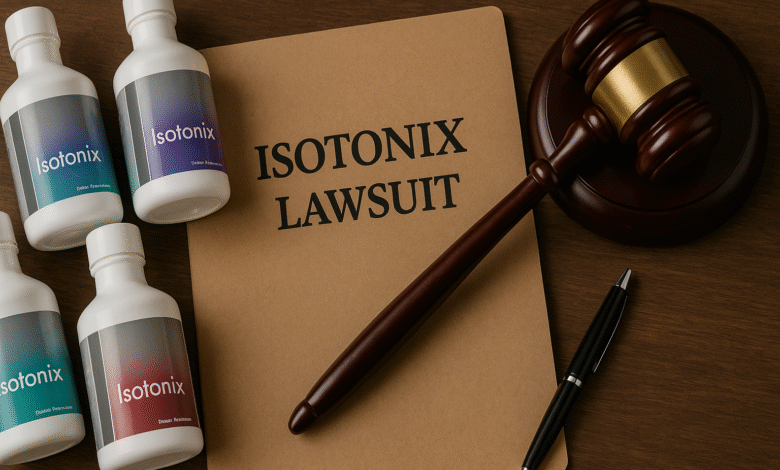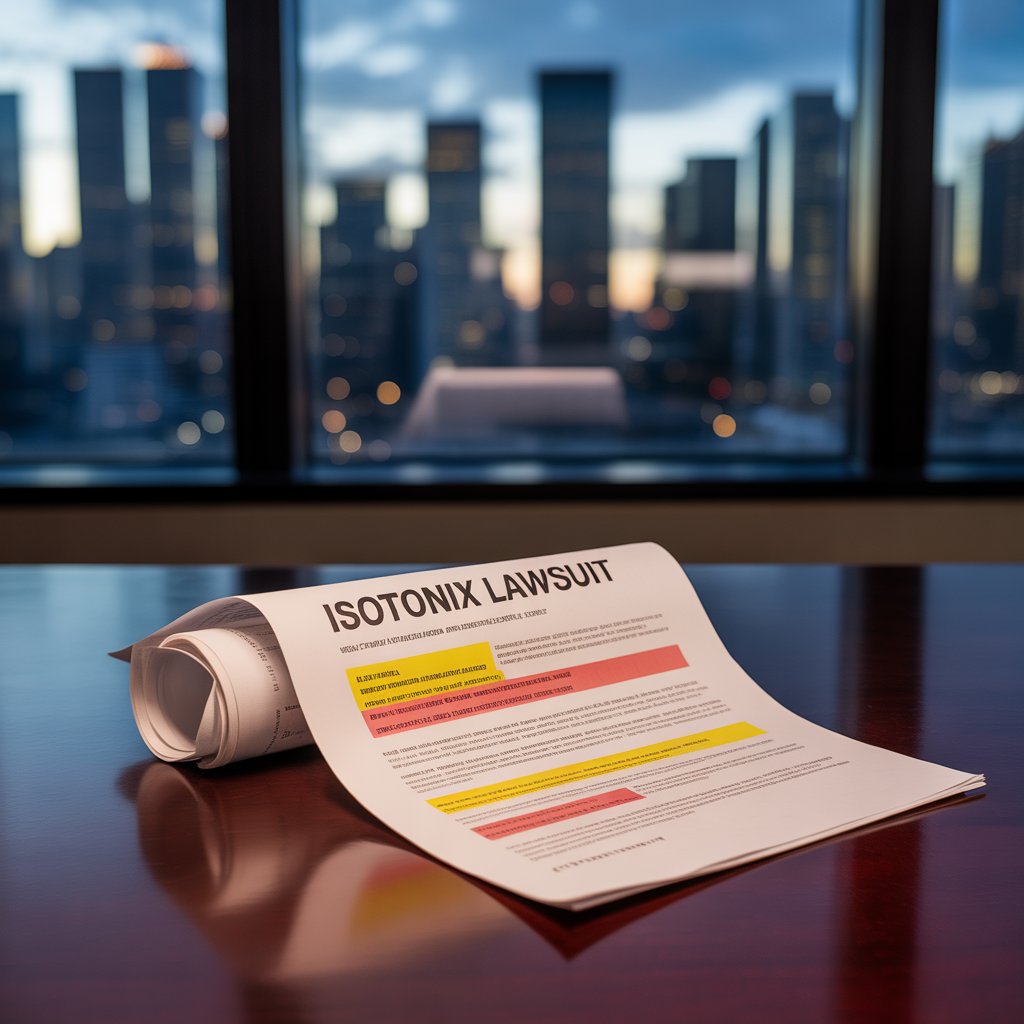The term isotonix lawsuit has become a hot topic in recent years, particularly among supplement users, health-conscious consumers, and individuals who have worked with multilevel marketing companies. For many, the lawsuit represents not only legal issues with one brand but also broader questions about the supplement industry and multilevel marketing practices in general.
In this in-depth guide, we will explore everything you need to know about the isotonix lawsuit—from its origins to its allegations, consumer reactions, and the long-term impact on both the brand and the dietary supplement industry as a whole.
Understanding Isotonix
Before diving into the isotonix lawsuit, it’s essential to understand what Isotonix is and why it became popular.
Isotonix is a line of health and nutritional supplements produced by Market America, a company founded in 1992. The supplements are promoted as unique because they come in a powder form that is mixed with water, creating an isotonic solution. An isotonic solution has the same osmotic pressure as human body fluids, which theoretically makes it easier for the body to absorb nutrients.
The company markets its products as solutions for:
-
Immune support
-
Digestive health
-
Energy and metabolism
-
Joint and bone support
-
General wellness
This unique delivery system, combined with strong marketing, helped Isotonix become a recognizable brand in the supplement industry. But like many supplement companies, Isotonix has also faced scrutiny. That scrutiny led to the isotonix lawsuit.
How Did the Isotonix Lawsuit Begin?
The isotonix-lawsuit originated from various concerns raised by consumers, former distributors, and regulatory bodies. Several issues led to legal disputes, including:
-
Allegations of false advertising – Critics claimed the company overstated the benefits of its supplements.
-
Pyramid scheme accusations – Market America’s multilevel marketing structure led some to believe it operated more like a pyramid scheme than a legitimate sales company.
-
Distributor losses – Many distributors complained about losing money after being encouraged to invest heavily in products and recruitment.
-
Regulatory compliance issues – Like many supplement companies, Market America faced challenges regarding FDA and FTC rules.
As a result, the isotonix-lawsuit became a complex legal matter involving multiple allegations over the years.
Isotonix Lawsuit and MLM Business Model
At the heart of the isotonix-lawsuit is the business model itself. Market America operates as an MLM (multilevel marketing) company. This means distributors earn commissions not only from selling products but also from recruiting new members.
Supporters’ View
Supporters argue that MLM provides a fair business opportunity and that success depends on individual effort. They claim that the isotonix-lawsuit is exaggerated and that many distributors do make money.
Critics’ View
Critics argue that MLM structures often prioritize recruitment over product sales. In the case of the isotonix lawsuit, plaintiffs claimed that Market America emphasized recruitment so heavily that the model resembled a pyramid scheme.
The MLM aspect is crucial because it often determines whether lawsuits succeed. If the court finds that recruitment is prioritized over sales, the company risks being classified as an illegal pyramid scheme.
Main Allegations in the Isotonix Lawsuit
Let’s break down the key allegations that emerged from the isotonix-lawsuit:
1. False Advertising of Health Benefits
One major allegation was that Isotonix supplements were marketed as having near-miraculous health benefits. Critics argued that while supplements can support health, the company exaggerated claims to mislead customers.
2. Pyramid Scheme Structure
The isotonix-lawsuit also involved claims that Market America’s system relied more on recruiting new distributors than on selling supplements. This raised serious concerns under consumer protection laws.
3. Financial Losses for Distributors
Many distributors alleged that they were promised financial independence but instead lost money. They claimed they were pressured to buy starter kits, inventory, and attend training events, all of which added up to significant losses.
4. Regulatory Scrutiny
Like many supplement companies, Market America faced regulatory scrutiny. The isotonix-lawsuit highlighted the need for stricter oversight in how supplements are marketed and sold.
Consumer Reactions to the Isotonix Lawsuit
The isotonix-lawsuit sparked heated debate among consumers and distributors.
-
Supporters – Some loyal customers argued that they genuinely benefited from Isotonix supplements. They believed the lawsuit unfairly targeted the brand.
-
Critics – Others felt vindicated, claiming that their doubts about both the product effectiveness and the MLM structure were confirmed.
The divided consumer reaction shows how lawsuits can shape brand reputations, for better or worse.
Impact of the Isotonix Lawsuit on the Industry
The isotonix-lawsuit did more than just affect Market America; it influenced the entire supplement and MLM industries.
Lessons for Supplement Companies
The lawsuit highlighted the importance of avoiding exaggerated health claims and being transparent aboutproduct benefits.
Lessons for MLM Companies
The case reminded MLMs that recruitment cannot overshadow actual product sales. Otherwise, they risk legal consequences.
Consumer Awareness
The isotonix-lawsuit educated consumers about asking tough questions before joining MLMs or buying supplements based on marketing promises.
How the Isotonix Lawsuit Changed Market America
Market America had to adapt after the isotonix-lawsuit. The company increased its focus on compliance, changed certain marketing strategies, and invested in defending its reputation.
Some distributors left due to mistrust, while others remained loyal, insisting that the products worked for them. The company still operates today, showing that while lawsuits may damage reputations, they don’t always destroy a brand.
Legal Precedents Set by the Isotonix Lawsuit
The isotonix-lawsuit also set precedents for how courts view MLM structures. It reinforced the importance of:
-
Transparency in income disclosures
-
Avoiding misleading promises about financial freedom
-
Ensuring product sales, not recruitment, remain the primary source of income
Other MLM companies have since faced similar lawsuits, often citing the isotonix lawsuit as an example.

Final Thoughts on the Isotonix Lawsuit
The isotonix lawsuit is more than just a legal dispute—it’s a lesson for the supplement and MLM industries. It shows how exaggerated claims, questionable business practices, and lack of transparency can lead to lawsuits and public distrust.
For consumers, the lawsuit is a reminder to carefully evaluate health products and business opportunities. For companies, it highlights the importance of compliance and honest marketing.
Despite the controversies, Isotonix continues to operate, showing the resilience of established brands. But the shadow of the isotonix-lawsuit will likely remain a part of its legacy for years to come.

